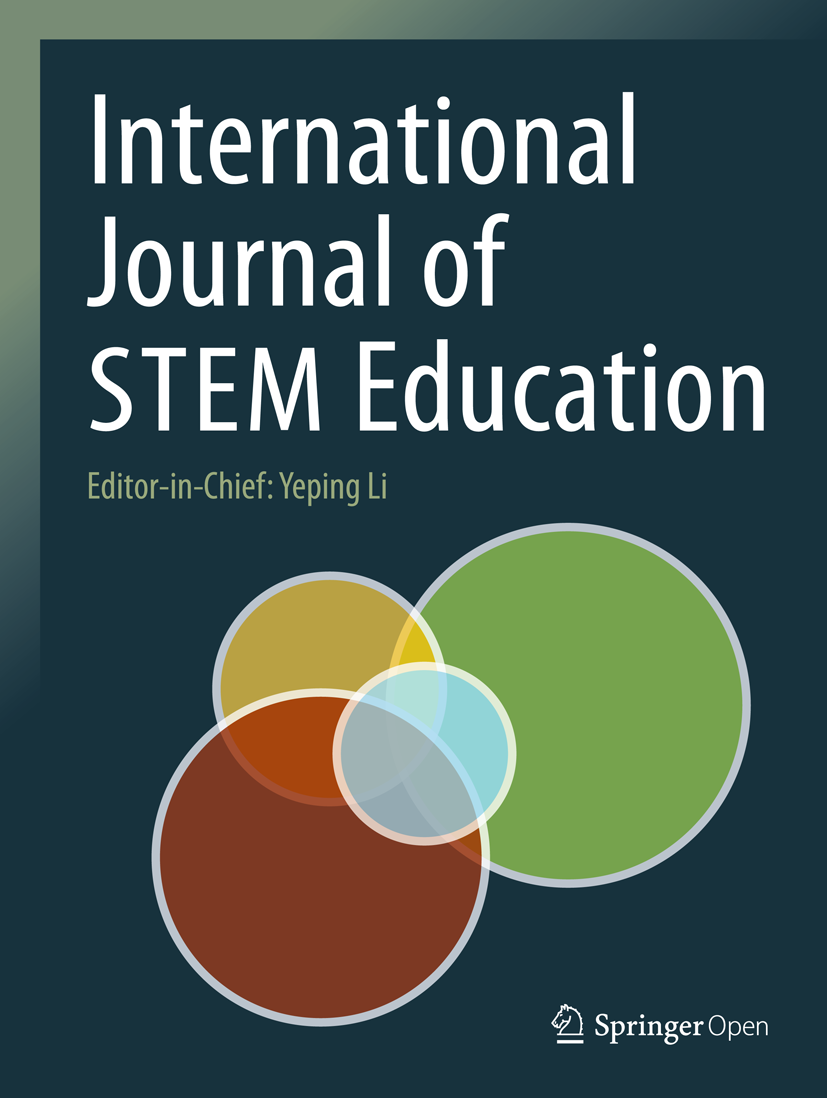将人工智能融入科学课程:教师的经验与观点
IF 8
1区 教育学
Q1 EDUCATION & EDUCATIONAL RESEARCH
引用次数: 1
摘要
在数字化转型的过程中,学校正在改变他们的教室,让学生为包括人工智能(AI)在内的新技术日益自动化的世界做好准备。在课程实施过程中,教师将人工智能作为一门独立的学科来教授是没有意义的,因为它不是学校的传统学科。因此,学科教师可能需要承担将人工智能内容整合到基于学科的课程中的责任,以帮助学生建立联系并看到其相关性,而不是将人工智能作为单独的内容呈现。本文报道了一项研究,该研究在科学课堂上试行了一套新的课程包,向学生介绍人工智能的概念。具体来说,由研究团队设计的人工智能集成科学课程包提供了一个扩展活动,该活动使用与现有课程活动相同的上下文。来自不同学校的三名科学教师在一小群学生中试用了这套课程包,并就教材和实施情况提供了反馈。调查结果揭示了教师对将人工智能纳入科学课程的看法,包括人工智能与科学之间的联系、实施人工智能课程包时面临的挑战以及改进建议。首先,教师们认为人工智能和科学在用高质量的数据开发准确的模型和使用简化的推理方面有相似之处,而他们认为人工智能和科学在解决科学问题方面发挥着互补的作用。其次,教师认为实施课程包的最大挑战是对内容掌握缺乏信心,而课程包在课程适应和针对适当受众方面很难获得教师的支持。考虑到这些挑战,他们建议向教师提供全面的人工智能资源,而这套资源可以用于课后的科学充实项目。这项研究对设计在科学课堂中引入人工智能的课程包的课程编写者,以及希望为教师的人工智能素养发展和向学生扩展学校科学和STEM范围做出贡献的科学教师都有影响。本文章由计算机程序翻译,如有差异,请以英文原文为准。
Integrating artificial intelligence into science lessons: teachers’ experiences and views
Abstract Background In the midst of digital transformation, schools are transforming their classrooms as they prepare students for a world increasingly automated by new technologies, including artificial intelligence (AI). During curricular implementation, it has not made sense to teachers to teach AI as a stand-alone subject as it is not a traditional discipline in schools. As such, subject matter teachers may need to take on the responsibility of integrating AI content into discipline-based lessons to help students make connections and see its relevance rather than present AI as separate content. This paper reports on a study that piloted a new lesson package in science classrooms to introduce students to the idea of AI. Specifically, the AI-integrated science lesson package, designed by the research team, provided an extended activity that used the same context as an existing lesson activity. Three science teachers from different schools piloted the lesson package with small groups of students and provided feedback on the materials and implementation. Findings The findings revealed the teachers’ perceptions of integrating AI into science lessons in terms of the connection between AI and science, challenges when implementing the AI lesson package and recommendations on improvements. First, the teachers perceived that AI and science have similarities in developing accurate models with quality data and using simplified reasoning, while they thought that AI and science play complementary roles when solving scientific problems. Second, the teachers thought that the biggest challenge in implementing the lesson package was a lack of confidence in content mastery, while the package would be challenging to get buy-in from teachers regarding curriculum adaptation and targeting the appropriate audience. Considering these challenges, they recommended that comprehensive AI resources be provided to teachers, while this package can be employed for science enrichment programs after-school. Conclusions The study has implications for curriculum writers who design lesson packages that introduce AI in science classrooms and for science teachers who wish to contribute to the development of AI literacy for teachers and the extension of the range of school science and STEM to students.
求助全文
通过发布文献求助,成功后即可免费获取论文全文。
去求助
来源期刊

International Journal of Stem Education
Social Sciences-Education
CiteScore
12.40
自引率
11.90%
发文量
68
审稿时长
13 weeks
期刊介绍:
The International Journal of STEM Education is a multidisciplinary journal in subject-content education that focuses on the study of teaching and learning in science, technology, engineering, and mathematics (STEM). It is being established as a brand new, forward looking journal in the field of education. As a peer-reviewed journal, it is positioned to promote research and educational development in the rapidly evolving field of STEM education around the world.
 求助内容:
求助内容: 应助结果提醒方式:
应助结果提醒方式:


